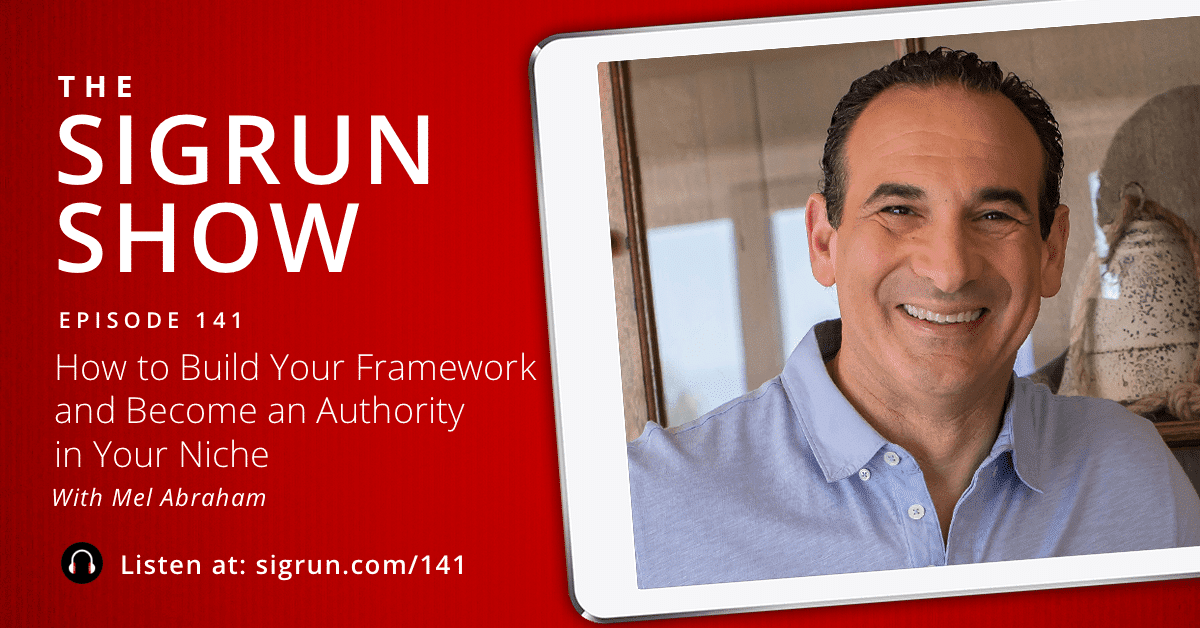
Mel Abraham, a.k.a. The Influencer’s Influencer and The Thought Leader to Thought Leaders, is the founder of Thoughtpreneur Academy, an online training program helping entrepreneurs build their expertise and authority in their niche to grow their businesses and increase their revenue. He is a sought-after speaker, the number one bestselling author of The Entrepreneur’s Solution, and the creator of The Entrepreneur’s Solution podcast, which is currently the top-ranked business podcast for social entrepreneurs.
In this episode, Mel shares his tips and insight on how to build your framework and become an authority in your niche. He explains the importance of creating your own unique content, the process and framework he uses to create content that gets results for his audience, and what he believes the difference is between being an entrepreneur and being a thoughtpreneur.
The value is in our thinking. - Mel Abraham
In This Episode of The Sigrun Show:
- The two things entrepreneurs need to master to build authority in their niche
- The Thinking Hierarchy Framework and its five stages
- The difference between an entrepreneur and a thoughtpreneur
- The importance of creating a process for the content you create
- How frameworks connect the emotional and logical sides for your audience
- The importance of breaking down your content into smaller chunks for your audience
- The four things that make up an effective framework
- Creating catchy, thought-provoking names for your content
- Using trademarks on your intellectual property and content
- The two things entrepreneurs need to protect in their businesses
- How quoting other people’s work and attributing other thought-leaders leads to your credibility, integrity, and ethics
- How to market your framework
Key Takeaways:
- The concept of marketing is great because it raises awareness. But it doesn’t necessarily get you the kind of business you want as an authority, influencer, thought-leader, or expert unless the marketing leads to positioning.
- Talking about theory and process does not lead to actionable results.
- The more we can think, the more we can create, the more we can communicate – the more impact we have.